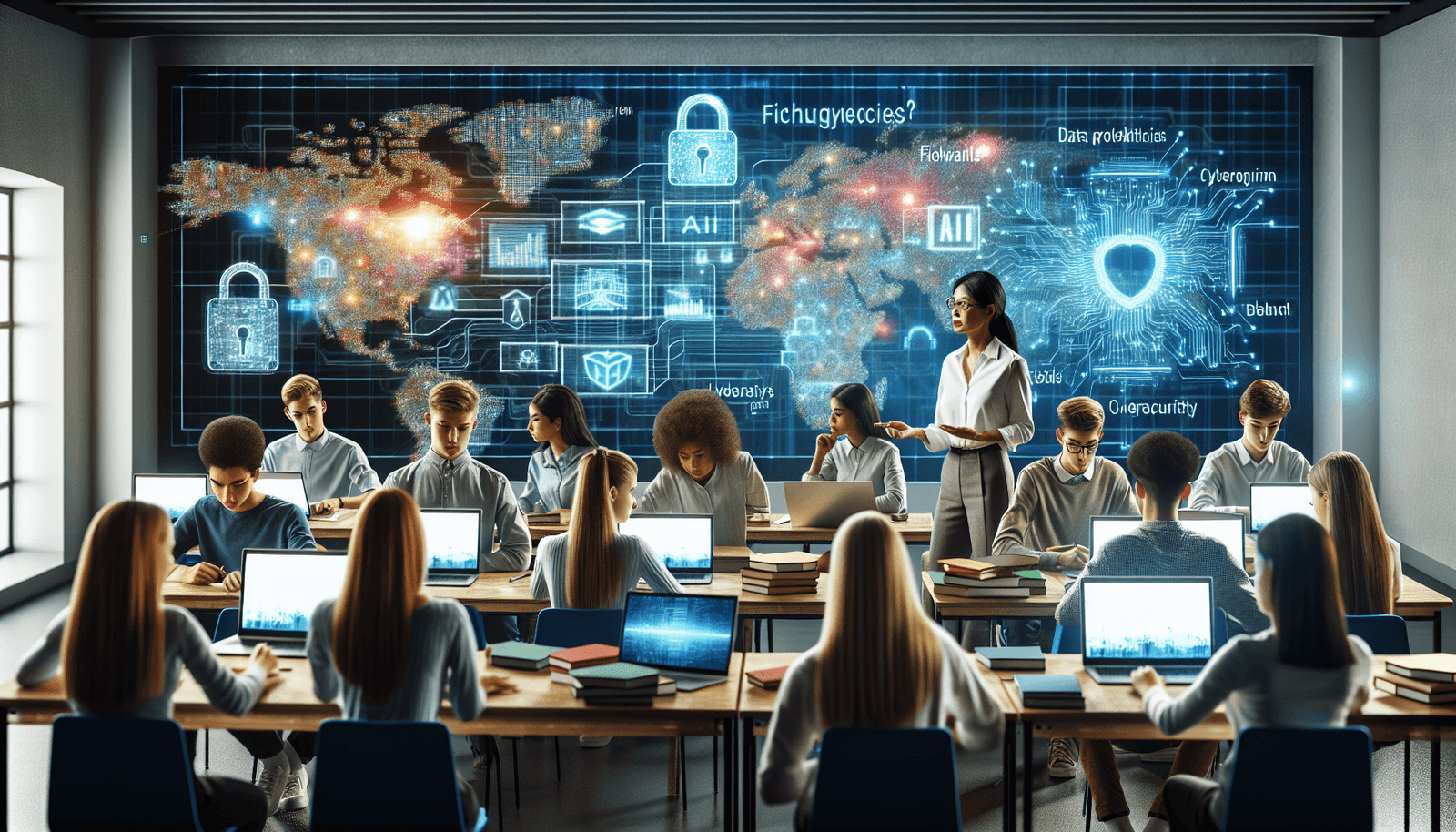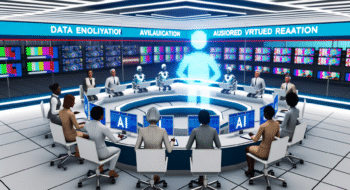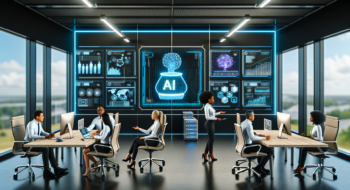As the digital landscape continues to evolve, the importance of cybersecurity and artificial intelligence (AI) in education is becoming increasingly evident. The Securities and Exchange Commission (SEC) is taking a proactive step by incorporating cybersecurity and AI into its curriculum review. This initiative aims to equip future professionals with vital skills to navigate and mitigate the challenges posed by cyber threats, ensuring a safer and more resilient digital environment. By focusing on these critical areas, the SEC is setting a standard for comprehensive education that aligns with the demands of today’s technology-driven world.
SEC’s Ambitious Move Toward Curriculum Revamp
The SEC’s decision to infuse cybersecurity and AI into the educational framework signifies more than just a shift in curriculum; it represents a fundamental recognition of the growing importance of these fields in today’s global economy. As educational institutions are called to adapt, this initiative opens doors for students to acquire skills that are paramount in various industries. With an increasing reliance on technology, every future professional, whether in finance, healthcare, or even government, will require a baseline understanding of how to protect digital assets and innovate responsibly.
Why Cybersecurity and AI Matter
In a world where data breaches and cyberattacks are escalating at an alarming rate, employers are more than ever seeking professionals who are well-versed in cybersecurity. Not only does this field address threats to sensitive information, but it also plays a critical role in maintaining consumer trust and the integrity of the financial markets. According to a recent report by the Identity Theft Resource Center, there were over 1,500 data breaches in 2022 alone, compromising millions of consumer records. This reality makes it clear: cybersecurity is not just optional; it’s essential.
On the other hand, AI offers transformative potential across multiple sectors. It can enhance efficiency, automate mundane tasks, and even provide predictive analytics to anticipate issues before they arise. By incorporating AI into educational programs, the SEC is looking to cultivate a generation of thinkers who not only understand how to leverage technology but also remain vigilant in the face of the ethical implications it presents.
The Core Components of the SEC Initiative
The core components of the SEC’s initiative are built on three fundamental pillars: curriculum enhancement, faculty training, and industry engagement. Together, these components create a holistic approach to education that prepares students for real-world applications.
1. Curriculum Enhancement
- Integrated Learning Modules: The SEC aims to develop integrated learning modules that cover both theoretical and practical applications of cybersecurity and AI. This means students will not only gain knowledge but also experience through simulations and real-life case studies.
- Interdisciplinary Approach: By merging these technologies with finance, business, and technology-related courses, students will learn how to apply cybersecurity measures and AI analytics across various landscapes.
- Certifications and Continuing Education: The introduction of specialized certifications in cybersecurity and AI will ensure that students leave with credentials that are recognized in the job market.
2. Faculty Training
The SEC acknowledges that teacher preparation is paramount to the success of this initiative. Therefore, faculty members will undergo rigorous training to stay up to date with the latest trends and technologies in cybersecurity and AI. The training will equip educators with the necessary tools and knowledge to effectively teach students, reinforcing a culture of innovation and excellence.
3. Industry Engagement
To maintain relevancy, the SEC plans to engage with industry leaders to understand the skill sets required in today’s workforce. Collaborations with leading technology firms, cybersecurity experts, and AI researchers will ensure that the curriculum aligns with actual market needs. This feedback loop not only helps in refining the curriculum but also provides students with networking opportunities that can lead to internships and employment.
Future Implications for Students and Professionals
The SEC’s initiative represents a significant step toward modernizing education, but what does this mean for students? For starters, potential students should feel a sense of excitement and urgency—they will be entering a job market that increasingly demands proficiency in these areas. Not only will they be more competitive candidates, but they will also be positioned to contribute to the development of technologies that shape society.
But this change transcends mere employability. It cultivates responsible digital citizens who understand the broader implications of technology. As cybersecurity threats become more sophisticated, an educated workforce will be essential to maintaining the nation’s security and economic stability. This future-ready approach speaks to a fundamental shift in how we view education—not merely as a path to a job but as a preparation for active participation in a rapidly changing world.
A Broader Context: Global Trends in Education
This initiative from the SEC is part of a growing global recognition of the importance of technology education. Countries around the world are evolving their curriculums in response to similar trends in cybersecurity and AI. For example, the European Union has launched major projects aimed at digital competence and innovation, while the United States is witnessing states revamping their educational frameworks to include coding and digital literacy.
As noted in a World Economic Forum article, governments and educational institutions are now tasked with preparing students not just for existing jobs, but for jobs that do not yet exist—driven by advancements in technologies like AI. The SEC is confidently stepping into this landscape, acknowledging the responsibility that accompanies their role in shaping professions for the future.
Cultural Shifts in Education and Beyond
In philosophical terms, the SEC’s decision to integrate cybersecurity and AI into its curriculum revamp can be perceived as a cultural shift in education. As we move towards a more technology-centric future, the blending of applied knowledge with theoretical understanding is essential to equip students for the complexities of modern work environments. This is a call for educational systems to cultivate not just technical prowess but also ethical awareness—two sides of the same coin.
Furthermore, this shift reflects a growing understanding that education must evolve in tandem with technological advancements. Failing to do so risks leaving future generations vulnerable—not just in terms of job opportunities but also in their ability to navigate an increasingly complex digital landscape.
Final Thoughts: A Commitment to the Future
The SEC’s initiative is a bold commitment that could set a new standard for educational institutions nationwide. With fewer than one in five cybersecurity professionals being women, this program presents a prime opportunity to encourage a diverse pool of candidates who will contribute to the protection of our digital infrastructure.
By championing cybersecurity and AI, the SEC is not just educating students; it is fostering a culture of resilience, innovation, and ethical responsibility. If other organizations take similar strides, we could see a transformative movement across educational landscapes that ensures preparedness for challenges of both today and tomorrow.
As students eye their future careers, the inclusion of cybersecurity and AI in education heralds a sense of optimism and security. With new challenges arising daily, these skills will be the linchpin in the workforce of tomorrow. To stay updated on this initiative, visit Neyrotex.com for insights and developments.
Embracing change can be daunting, but as history shows, it is always accompanied by opportunity. The SEC is paving the way, ensuring that the workforce of tomorrow thrives amidst evolving challenges. Let’s hope other institutions follow suit, as we stand on the brink of a new era in educational excellence.
For additional insight into the transformation in educational norms influenced by technology, check out this Education Week article that delves into the integration of cybersecurity in schools.
A changing digital landscape demands that we adapt, innovate, and evolve—and in the words of Albert Einstein, “The measure of intelligence is the ability to change.” Embracing cybersecurity and AI in education is the beginning of a powerful transformation.
Finally, for more information about cutting-edge solutions in cybersecurity and AI, visit Neyrotex.com and explore how these technologies can empower institutions and individuals alike.







